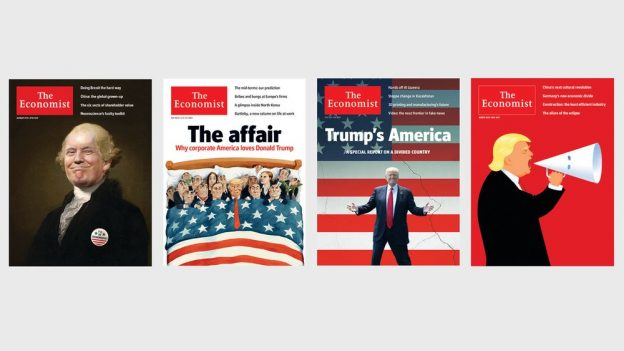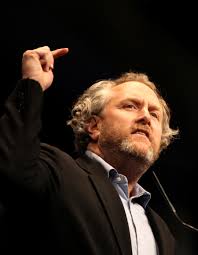Unlike the American media, the British lefties are honest reporters. This is why the Economist’s litany of President Trump’s achievements, framed as failures, is most credible. Take it to the bank; it’s what Biden will attempt to reverse.
In “President Trump has had real achievements and a baleful effect,” the magazine writes:
… What is perhaps less appreciated is the degree to which it has succeeded. The “Muslim ban” issued in the first days of his presidency ran afoul of the courts and had to be reworked; the border wall Mr Trump promised has not been built, let alone paid for by Mexico. But eligibility criteria for asylum have been tightened, and asylum-seekers at the border must now wait in Mexico while decisions are made. “It may not be the physical wall that Trump initially touted, but there is now a bureaucratic wall that expels every unauthorised immigrant on the southern border,” says Sarah Pierce, an analyst at the Migration Policy Institute. In its revised form the Muslim ban remains in place, with little dissent.
Apprehensions at the border with Mexico have risen to their highest level in 12 years (see chart 1), and in 2019 there were 360,000 deportations. That was not a record—there were 432,000 in 2013—but it was more than there were in 2016, and the share of the deported who had no criminal records, 14% in 2016, had risen to 36%. The administration also increased the bureaucratic hurdles faced by those trying to immigrate legally. Applications for temporary visas and permanent-residency permits have both declined by 17% since 2016. The annual ceiling of refugee admissions has been slashed. The White House recently proposed just 15,000 admissions for 2021, compared with 85,000 admitted in 2016.
… Growth never quite reached the lustrous annual rate of 4% he promised, but it did do better than many had forecast, and his tax cut in 2017 turned out to be a well-timed fiscal stimulus. At the end of last year unemployment was at its lowest level for half a century. The wages of the less well paid were rising swiftly.
What was more, he had made good on other parts of his agenda. Trade deals he disliked had been abandoned or rewritten, tariffs had been slapped on countries accused of stealing jobs and immigration had fallen dramatically. He had appointed two conservative justices to the Supreme Court, a number which he has now brought up to three. …
…But on many issues he stood out as unorthodox, extreme or both—and in so doing captured voters’ imaginations in a way that his rivals did not. He pledged to deport all 11m undocumented immigrants in the country and build a wall on the border with Mexico. He derided the party’s foreign-policy and free-trade orthodoxies as failures, and held that trade deficits were purely a sign of weakness and poor negotiating—which, as the master of the deal, he could set right. He bashed Wall Street and was against making Social Security and Medicare, the pension and health-insurance programmes for the elderly, less generous. He mocked and disparaged not just his opponents, but also revered Republicans such as the late Senator John McCain (a “loser”).
…Mr Trump’s judicial appointments, too, were those that any other Republican might have made, given the chance. That he got that chance was thanks to Mitch McConnell, the Senate majority leader, who held up the confirmation of a number of Barack Obama’s judicial nominations—most notably that of Merrick Garland for the Supreme Court in March 2016. The resultant backlog allowed Mr Trump to follow the recommendations of the Federalist Society, a fraternity of conservative jurists, in appointing about 30% of the federal judiciary. Sandra Day O’Connor, Antonin Scalia and Anthony Kennedy—the three justices whom it took Reagan two terms to put on the bench—shaped the court’s rulings for decades. It is likely that Neil Gorsuch, Brett Kavanaugh and Amy Coney Barrett will do so too. …
… On the signature issues which set the Trump campaign apart from the Republican establishment, the successes look more vulnerable to revocation. Take immigration. Xenophobia was the raison d’être for his campaign in 2016, which he launched with a speech warning that Mexico was sending rapists and drug-dealers across the border; later on, Mr Trump called for a “total and complete shutdown of Muslims entering the United States”. His administration’s aggressive restriction of migration was therefore no surprise, even if the shock of seeing children alone in detention camps because of a policy of family separation caused an outcry
MORE: “President Trump has had real achievements and a baleful effect.”




